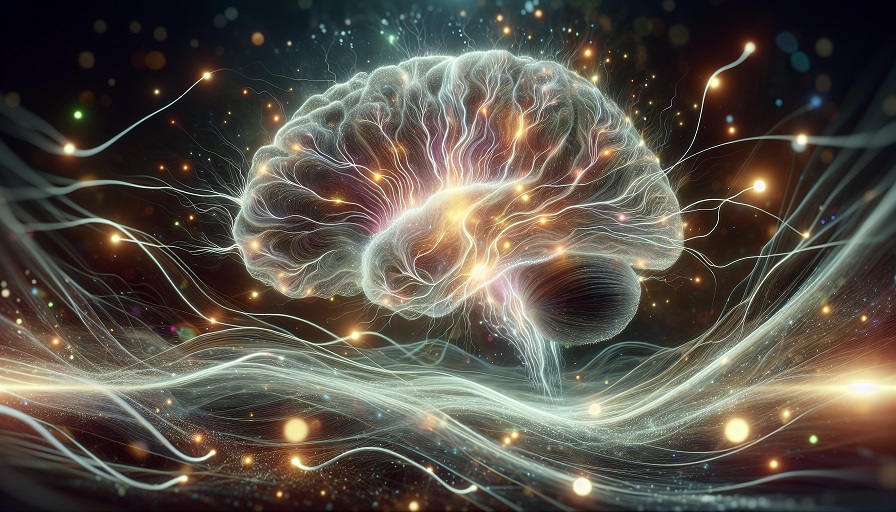
Not long ago, I noticed something unsettling – my mental sharpness wasn’t quite what it used to be. I wasn’t forgetting where I lived or misplacing my keys every day, but little things were creeping in. I’d walk into a room and forget why, search for a word mid-sentence, or stare blankly at my to-do list, unsure where to start. It wasn’t dramatic, but it was enough to make me wonder if this was simply “getting older.”
What I’ve learned since then is that age is only part of the equation. Brain performance isn’t set in stone. In fact, over the last several months, I’ve made changes that have made my mind feel younger, faster, and more resilient than it has in years. If I had to put a number on it, I’d say I’ve rolled the clock back at least a decade in terms of how quickly and clearly I can think.
Contents
Understanding Why the Brain Slows Down
Our brains naturally change with age – processing speed can decline, neurotransmitter activity can shift, and neuroplasticity (the brain’s ability to adapt) can slow. But lifestyle factors like poor sleep, high stress, sedentary habits, and nutrient deficiencies can accelerate that decline. The flip side is just as important: the right habits and nutrition can maintain or even enhance brain function well into later life.
Researchers have found that adult brains remain capable of forming new connections and strengthening existing ones when given the right stimulus. That means there’s real potential to “rejuvenate” your brain’s performance, no matter your starting point.
The Changes That Made the Biggest Impact
I didn’t overhaul my entire life overnight. Instead, I layered small, sustainable changes that worked together to improve clarity, recall, and mental stamina.
1. Moving Daily – Even Just a Little
Regular exercise isn’t just good for the body; it’s critical for the brain. Aerobic activity increases blood flow, delivering oxygen and nutrients that keep neurons healthy. I started with brisk walks in the morning and short strength sessions twice a week. The consistent movement noticeably improved my focus during work hours.
2. Protecting My Sleep Like It’s Gold
Memory consolidation happens during deep sleep. Before, I often stayed up late scrolling my phone, only to wake up groggy and unfocused. Now, I have a wind-down routine: lights dimmed an hour before bed, no screens in the bedroom, and a consistent bedtime – even on weekends. Within two weeks, my morning brain fog began to fade.
3. Training My Brain Intentionally
Instead of passively consuming information, I engage in activities that challenge my brain: learning a few phrases in a new language, tackling logic puzzles, or explaining concepts I’ve learned to someone else. These activities push my brain to adapt, reinforcing neuroplasticity.
4. Feeding My Brain What It Needs
Food has a direct impact on cognitive performance. I added more omega-3-rich foods like salmon and walnuts, increased leafy greens for antioxidants, and limited refined sugar to avoid post-meal energy crashes. I also started taking Mind Lab Pro – a nootropic supplement with citicoline for brain energy, lion’s mane mushroom for neuroplasticity, and bacopa monnieri for memory. The steady clarity I feel throughout the day is one of the biggest differences I’ve noticed.
5. Managing Stress Proactively
Chronic stress floods the brain with cortisol, which can impair memory and focus. I now take short breaks to breathe deeply, go for a walk, or listen to calming music. Even five minutes of mindful breathing can reset my mental state, keeping stress from derailing my thinking.
Signs My Brain Is Running Younger
After a few months of these changes, the differences were clear:
- Sharper recall: I can remember names, dates, and details from conversations without hesitation.
- Faster problem-solving: I connect ideas more quickly, making work tasks feel easier.
- Steadier energy: No more 3 p.m. crashes that leave me mentally drained.
- Improved focus: I can stay locked into a task for long stretches without my mind wandering.
- More creativity: Ideas flow more freely, especially when brainstorming or writing.
The Science Behind the Feeling
What I’m experiencing lines up with what researchers have documented: regular physical activity increases hippocampal volume (important for memory), quality sleep boosts synaptic plasticity, and proper nutrition supports neurotransmitter balance. Nootropic compounds like citicoline and bacopa monnieri have been studied for their roles in improving memory and cognitive speed. By addressing multiple aspects of brain health, the improvements add up – and they’re noticeable in everyday life.
How You Can Start Your Own Brain Rejuvenation
You don’t have to adopt every habit at once. Choose one or two changes you can stick with consistently. Maybe it’s adding a short walk each morning, setting a firm bedtime, or introducing more brain-friendly foods. Over time, layer in additional habits that target movement, sleep, mental training, stress management, and nutrition. The benefits build on each other.
I used to think a sharper mind was something you either had or lost with age. Now I know it’s something you can actively maintain and improve. My brain feels more capable than it did in my late twenties, and it’s not because I discovered a miracle – it’s because I started treating brain health as a daily priority.
If your mind has been feeling slower lately, the good news is that you can make changes now that will pay off in the weeks, months, and years ahead. A “younger” brain is possible – and worth the effort.

